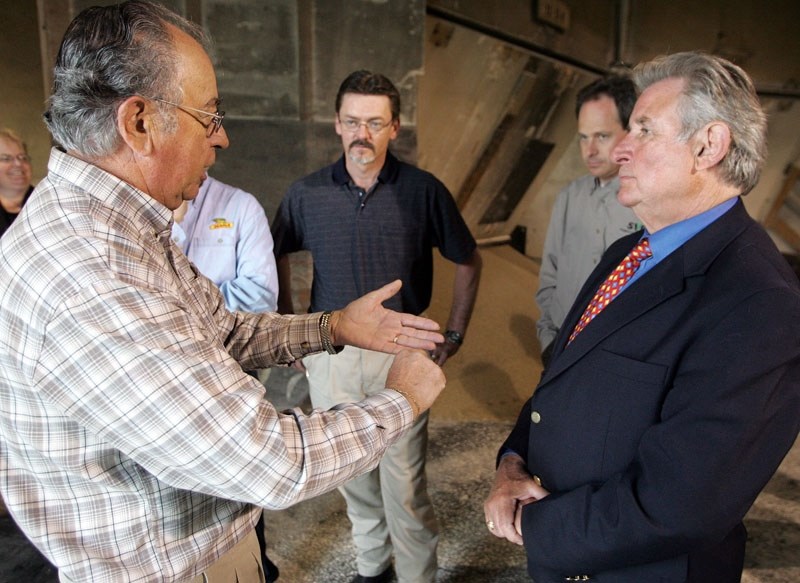Former premier Ralph Klein was a natural people person who wasn’t afraid to stick to his guns when he believed it mattered or concede error when he felt it warranted, say local officials who knew him.
“(Klein) had a personality and ability to relate to people that no one before or perhaps ever after will ever duplicate,” said Richard Plain, a two-time mayor of St. Albert who socialized with Klein while both were in office. “He was able to communicate to people in ways that were clearly understood.”
Klein, 70, died Friday after struggling with chronic obstructive pulmonary disease and a progressive form of dementia. A public memorial service for Klein, who served as premier of Alberta from 1992 to 2006, will be held in Calgary this Friday.
Those who worked with Klein in government remembered him fondly for his dedication to a fiscally responsible future for Alberta as well as a friendly, approachable demeanour that won over so many people.
“He was a man of the people showing us you can do some very difficult things if the people are with you,” said Doug Horner, MLA for Spruce Grove-St. Albert and minister of finance for Alberta. “He did some very difficult things but he also created some lasting ones as well in terms of fiscal responsibility and help for Albertans in need.”
It was Klein who first appointed Horner to cabinet in 2004 as minister of agriculture and rural development. The appointment, though significant, was relatively abrupt, Horner remembered.
“It was a very brief phone call,” Horner said. “He said, ‘How would you like to be minister of agriculture and rural development? You’re going to do well and we’ll see you Monday.’ ”
Klein’s biggest impression on many PC MLAs, however, was imploring them to get out into their constituencies, instead of living life “under the dome” of the Legislature.
“I think that was one of the most valuable lessons he was able to give to many politicians,” Horner said.
Mary O’Neill, who served as a PC MLA for St. Albert from 1997 to 2004, remembered Klein’s willingness to allow members of the PC caucus to submit private member’s bills. It was that latitude that allowed O’Neill to draft and have passed the contentious School Trustee Statutes Amendment Act, which prohibited school employees from running for school trustee.
“He allowed us as private members to proceed as we wished,” O’Neill said. “He gave latitude to his members on non-government policy.”
Klein’s dogged determination to eliminate the province’s $23-billion debt also put Alberta in the position it is now, O’Neill said.
“It left some deficits in infrastructure that are being addressed now. I find there’s a continuity – we wouldn’t be in the position we are today – enabling us to invest in infrastructure – if it hadn’t been for getting ourselves out of debt,” O’Neill said.
But most of all, everyone asked remarked on Klein’s ability to speak with anyone from any walk of life and make them feel like they were being heard.
“He was an easy guy to have a conversation with,” said former St. Albert mayor Paul Chalifoux. “He looked at you. That was always a sign to me that someone is paying attention.”
Even those who sat on the opposition benches respected Klein, even if they frequently argued over policy.
“My job was to critique and sometimes he resented that,” said Colleen Soetaert, a Liberal MLA for Spruce Grove-St. Albert from 1993 to 2001. “And sometimes I was a little louder than maybe I should have been, but I would say we both had a sense of humour so we could live through those livelier times.”
Klein’s legacy is broad, Horner said, but most significant is Alberta’s footing today, seven years after Klein left the premier’s office in 2006.
“The legacy is that we have to watch our operating spending and live within our means,” said Horner. “We’re in the best financial situation of any jurisdiction in North America because we are able to (live within our means).”




